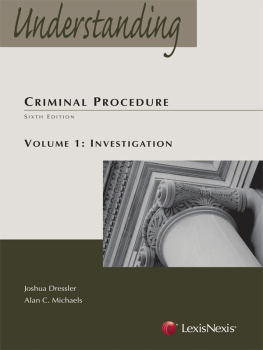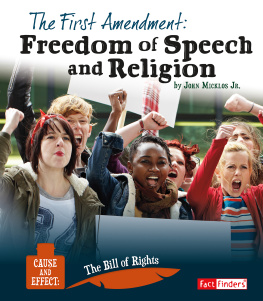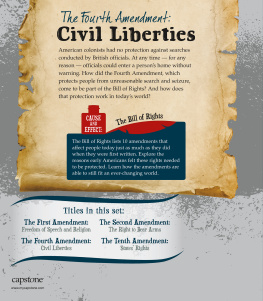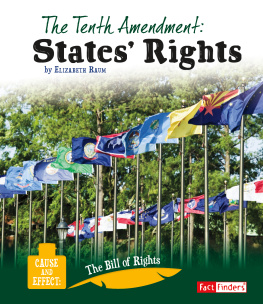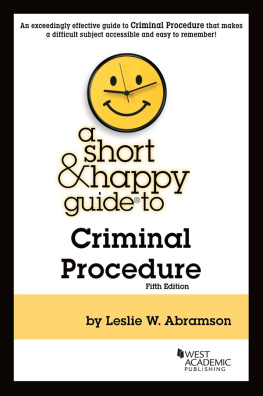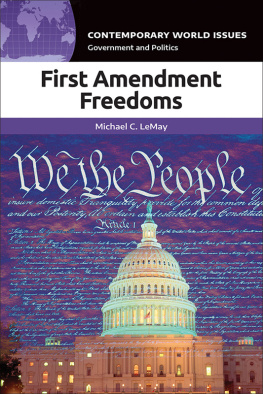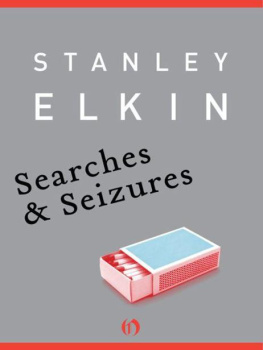UNDERSTANDING
CRIMINAL PROCEDURE
Volume 1: Investigation
LexisNexis Law School Publishing
Advisory Board
Paul Caron
Charles Hartsock Professor of Law
University of Cincinnati College of Law
Olympia Duhart
Professor of Law and Director of Lawyering Skills & Values Program
Nova Southeastern University Shepard Broad Law School
Samuel Estreicher
Dwight D. Opperman Professor of Law
Director, Center for Labor and Employment Law
NYU School of Law
Steven I. Friedland
Professor of Law
Elon University School of Law
Joan Heminway
College of Law Distinguished Professor of Law
University of Tennessee College of Law
Edward Imwinkelried
Edward L. Barrett, Jr. Professor of Law
UC Davis School of Law
Paul Marcus
Haynes Professor of Law
William and Mary Law School
John Sprankling
Distinguished Professor of Law
McGeorge School of Law
Melissa Weresh
Director of Legal Writing and Professor of Law
Drake University Law School
[i/ii]
UNDERSTANDING
CRIMINAL PROCEDURE
Volume 1: Investigation
Sixth Edition
Joshua Dressler
Frank R. Strong Chair in Law
Michael E. Moritz College of Law
The Ohio State University
Alan C. Michaels
Dean and Edwin M. Cooperman Professor of Law
Michael E. Moritz College of Law
The Ohio State University

[ii/iii]
ISBN: 978-0-7698-6298-9 (print)
ISBN: 978-0-3271-8423-2 (E-book)
Library of Congress Cataloging-in-Publication Data
Dressler, Joshua.
Understanding criminal procedure. Volume 1, Investigation / Joshua Dressler, Frank R. Strong Chair in Law, Michael E. Moritz College of Law, The Ohio State University, Alan C. Michaels, Edwin M. Cooperman Professor of Law, Michael E. Moritz College of Law, The Ohio State University. -- Sixth edition.
pages cm.
Includes index.
ISBN 978-0-7698-6298-9 (softbound)
1. Criminal procedure--United States. I. Michaels, Alan C. II. Title.
KF9619.D74 2013
KF9619.D74 2013
2013008760
This publication is designed to provide authoritative information in regard to the subject matter covered. It is sold with the understanding that the publisher is not engaged in rendering legal, accounting, or other professional services. If legal advice or other expert assistance is required, the services of a competent professional should be sought.
LexisNexis and the Knowledge Burst logo are registered trademarks of Reed Elsevier Properties Inc., used under license. Matthew Bender and the Matthew Bender Flame Design are registered trademarks of Matthew Bender Properties Inc.
Copyright 2013 Matthew Bender & Company, Inc., a member of LexisNexis. All Rights Reserved.
No copyright is claimed by LexisNexis or Matthew Bender & Company, Inc., in the text of statutes, regulations, and excerpts from court opinions quoted within this work. Permission to copy material may be licensed for a fee from the Copyright Clearance Center, 222 Rosewood Drive, Danvers, Mass. 01923, telephone (978) 750-8400.
NOTE TO USERS
To ensure that you are using the latest materials available in this area, please be sure to periodically check the LexisNexis Law School web site for downloadable updates and supplements at www.lexisnexis.com/lawschool.
Terms of Use
Your use of this electronic publication (eBook) from LexisNexis, a division of Reed Elsevier Inc., a Massachusetts corporation, is subject to the following terms and conditions. This eBook is for your personal use only. All access to and use of this eBook is subject to U.S. and international copyright law. All intellectual property rights are reserved to the copyright holder. Redistribution or duplication of this eBook to any other electronic media or a third party is strictly prohibited unless the original eBook is deleted, purged or otherwise destroyed in its entirety. Under no circumstances may you redistribute this eBook commercially or post this eBook on an intranet, internet or SharePoint site. Any transfer of this eBook shall be to an individual person only and will subject the transferee to these terms and conditions. Finally, use of this eBook is further subject to the terms and conditions of use which were accepted at the time you completed your purchase of this eBook from the Bookstore.
Hyperlink Key
In order to distinguish between the links to other sections within LexisNexis eBooks and external links to the Internet, we have added color coding to the links.
Following is a color key for the links:
Blue: Links inside the eBook
Green: External links to LexisNexis on-line and the Internet
[iii/iv]
To The Girls In My Life: Lucy Belle and Maya Shoshana
&
To Noahs Wonderful Caretakers: Izzy, Gabby, Sophie, Pam and Gus
J.D.
To Barbara and Roger Michaels: Thank you, for everything
A.C.M.
[v/vi]
PREFACE
This text is intended for use in law schools, although we can report with pleasure that legal scholars, practicing attorneys, and judges have found it of value in their work.
This volume is intended for use in criminal procedure courses focusing primarily or exclusively on police investigatory process. Such courses are variously titled: Criminal Procedure I; Criminal Procedure: Investigation; Criminal Procedure: Police Practices; Constitutional Criminal Procedure; etc. Because some such courses also cover the defendants right to counsel at trial and on appeal, this text includes a chapter on this non-police-practice issue. This sixth edition incorporates the many significant changes in the law that have occurred since publication of the last edition.
Because Understanding Criminal Procedure is primarily designed for law students, it is written so that students can use it with confidence that it will assist them in course preparation. Indeed, frequently professors recommend or assign this text to their students to improve classroom dialogue. Based on the experience of prior editions, as well, we are confident that this sixth edition will continue to prove useful to scholars, practicing lawyers, and courts.
The text covers the most important United States Supreme Court cases in the field. Where pertinent, the Federal Rules of Criminal Procedure, federal statutes, and lower federal and state court cases are considered. The broad overarching policy issues of criminal procedure are laid out; and some of the hottest debates in the field are considered in depth and, we think, objectively.
Readers should find the text user-friendly. Students who want a thorough grasp of a topic can and should read the relevant chapter in its entirety. However, each chapter is divided into subsections, so that readers with more refined research needs can find answers to their questions efficiently. We also include citations to important scholarship, both classic and recent, into which readers may delve more deeply regarding specific topics. And because so many of the topics interrelate, cross-referencing footnotes are included so that readers can easily move from one part of the book to another, if necessary.
Gender policy of the Text. Obviously, women as well as men fill all the roles in the criminal justice system: lawyer, judge, police officer, legislator, criminal suspect, and victim. Accordingly, in even-numbered chapters, we use the male pronoun to describe hypothetical and generic parties in the criminal justice system; in odd-numbered chapters, women get equal time. Based on comments we have received about this policy, most readers like the approach or, at worst, find it only temporarily distracting.

